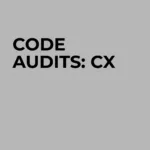Introduction
In the realm of Software-as-a-Service (SaaS) investments, the stakes are high, and the devil often lies in the details—or rather, in the lines of code. While the market buzz might sing paeans about a promising SaaS startup, many hidden risks could lurk beneath its polished exterior. In this blog post, you can discover the importance of code audits for SaaS investors and how it can help you to safeguard your ROI.
What is a Code Audit?
A code audit is not a mere perusal but an exhaustive review of a software codebase to scrutinize its quality, efficiency, and security. Consider it a comprehensive health check-up for your investment’s digital anatomy, dissecting the lines of code to evaluate their robustness and sustainability. Conducted by seasoned experts, a code audit transcends superficial evaluations to offer insightful metrics that can fundamentally influence your investment strategy.

The Critical Role of Identifying Vulnerabilities
Unearthing vulnerabilities in a software codebase isn’t just a cautionary step – it’s a paramount measure. In an era where cyber threats continually evolve, overlooking the microscopic defects can have macroscopic repercussions. Data breaches and system failures tarnish a company’s reputation and can also rattle the foundations of investor confidence. By identifying these weaknesses early, you set a safeguard around both your financial assets and your standing as a discerning investor.
Technical Debt: The Hidden Costs Lying Beneath
Let’s start by explaining what is “technical debt”.
“Technical debt refers to the long-term costs and complexities incurred by taking coding shortcuts or making design compromises to expedite software development.”
The term “technical debt” may not appear in quarterly financial statements, but its impact is often long-lasting and significant. Think of it as the accrued ‘interest’ in coding shortcuts and rushed implementations designed for a quick market launch. While these choices might seem manageable initially, the debt compounds over time, culminating in substantial costs for future repairs and upgrades.
The Essence of Future-Proofing Investments
In a world driven by constant innovation, the ability of software to scale to meet escalating demands is not a luxury—it’s a necessity. A well-executed code audit evaluates the software’s scalability, offering invaluable foresight into its potential longevity and adaptability. By future-proofing your investment through a preemptive code audit, you shield it against obsolescence and position it for sustainable growth.
Complexity in Code: A Double-Edged Sword
A simplistic view of code might suggest that straightforward coding practices are universally beneficial. However, the reality is more nuanced. While simple code is easier to understand, it can be paradoxically more challenging to maintain and adapt, especially when evolving business demands necessitate complex features. Code audits delve into this intricate balance, evaluating the software’s maintainability while determining potential future complexities and costs.
The Imperative of Speed and Performance
In today’s breakneck-paced digital landscape, speed is not just a virtue – it’s a competitive advantage. A comprehensive code audit will evaluate the efficacy of algorithms, scrutinize server responses, and examine how well the software utilizes computational resources. In other words, it ensures that your investment is secure but also agile and efficient—cornerstones of an exceptional user experience.
Financial Implications of Code Quality
The qualitative aspects of code invariably spill over into quantitative financial realities. Poorly written code can hemorrhage funds into unexpected arenas like repairs, damage control, and crisis management. In contrast, a preemptive code audit empowers you with the knowledge to gauge these hidden costs, enabling you to make calculated, data-backed investment decisions.
Debunking the Myth: Code Audits Beyond Tech Teams
One of the prevailing misconceptions about code audits is that they are solely beneficial for tech teams within an organization. In reality, they serve as a high-resolution lens through which investors can assess the health and viability of a potential investment. Far from being an esoteric, tech-centric exercise, code audits demystify the complexities, offering transparent insights into potential risks and returns.
The Code Audit: An Essential Tool for Intelligent Investors
Failure to undertake a code audit is akin to navigating a minefield blindfolded. For the astute investor, it is not just a prudent choice but an essential tool. A code audit minimizes risks, offers foresight, and, most importantly, imbues your investment decisions with a layer of certainty often elusive in the volatile world of SaaS ventures.
Conclusion
If you’re an investor aiming for more than just speculative gains—if you’re aiming for a legacy of intelligent, impactful investments—then adopting code audits into your due diligence process is not optional – it’s imperative. Discover how to transform your investment strategies from promising to indisputably secure and savvy.
Intrigued? Reach out to Quantum Gnomes today and schedule a consultation for a comprehensive Code Audit. Click that Get in Touch button below to get started!



